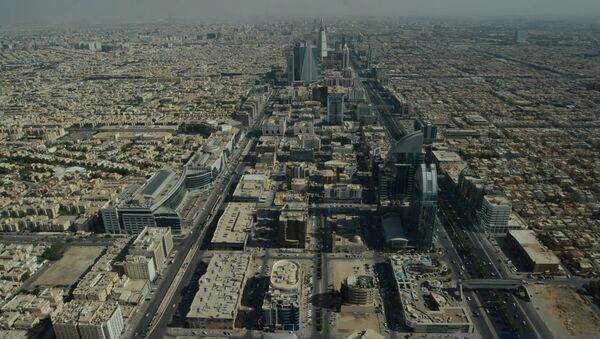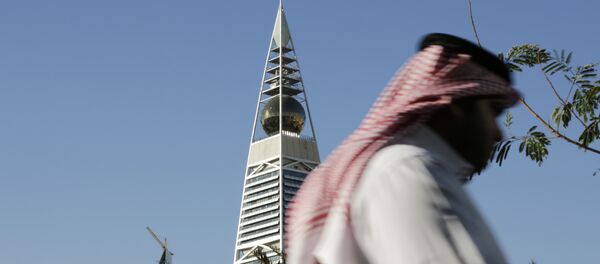According to the International Monetary Fund (IMF), Saudi Arabia will run out of its reserves within five years if oil prices stay around $50 per barrel. This year, the country is expected to face a deficit of 20 percent of GDP.
Saudi Arabia cannot balance its budget if oil price is below $106 a barrel, according to IMF analysts.
In July, Riyadh began to spend its reserves. In one year from August 2014, they dropped from $740 billion to $645.5 billion. Recently, Saudi Arabia has entered the international bond market, and its first bonds were purchased by Saudi banks.
"However, the bond yield is not helping the kingdom maintain its high level of government spending. In September, Barclays predicted that if the oil price holds at $50, the Saudis’ gold reserves will last until 2019 if spending continues at the current pace," the author wrote.
Earlier, Saudi Arabia announced it would have to cut budget spending in education and healthcare as well as to abandon many domestic projects, including the construction of a world-class shipyard.
"Other Gulf countries that are pursuing sound policies and not rushing headlong into assorted escapades (Kuwait and the UAE, for example) are much better shielded against low oil prices, the IMF said. That’s largely because their budgets are not tied as much to the cost of energy commodities," the article read.
One of the options to cut budget deficit proposed by the Saudi government is increasing domestic energy prices. Currently, energy prices in the kingdom are among the lowest in the world as they are state-subsidized. Each year, Saudi Arabia spends about $86 billion on subsidies for oil producers.
"But the kingdom loses potential revenues by selling oil much cheaper at home than abroad. The question is how Saudi citizens will react to a cancellation of the subsidies, whether that will cause discontent and spark a societal explosion, a 'Saudi Spring' as it were," the analyst wrote.
Recently, the IMF recommended Riyadh to end its total reliance on oil income. The message from IMF Managing Director Christine Lagarde was to diversify the Saudi economy, including stimulating private-sector employment.
Lagarde warned that so for Saudi Arabia has coped with its budget issues thanks to its large foreign exchange reserves, but it will not last long.
"It will be interesting to see what difficulties lie ahead for this once-wealthy country whose royal voice was heeded by the power brokers of this world. But now the situation has changed dramatically, and the reason can be found in the missteps made by the royal house, which simply lost its way in the global arena," the author wrote.




